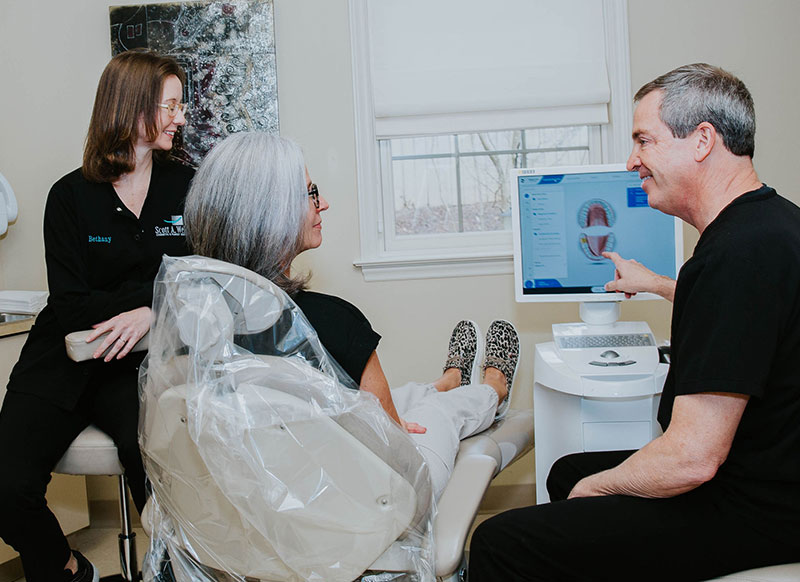
After Care – TOOTH EXTRACTIONS
If you have a severely damaged or infected tooth, your tooth may need to be extracted. In most cases, you’ll receive a bridge or dental implant to fill the space where the tooth was removed. When you leave the office after an extraction, you must treat the affected area carefully and take any medications Dr. Welch prescribes for you as directed.
Bleeding
Minor bleeding after an extraction is to be expected, but it’s essential to keep it under control. So follow Dr. Welch’s instructions carefully! Typical advice is:
- Bite firmly on gauze, keeping pressure on the area to help form a blood clot in the tooth socket.
- Change gauze pads regularly, so they do not get saturated with blood.
- Do not lie flat in the hours after your extraction – keep your head elevated, which will help slow and stop any bleeding.
- Do NOT drink out of a straw, which may dislodge the blood clot, making you more susceptible to painful “dry socket.”
- Do NOT smoke. Smoking can break down blood clots.
- After 24 hours, rinse your mouth with a salt-water solution four times a day.
Discomfort or Pain
Minor pain after an extraction is normal, but following the guidelines below, you can manage any discomfort you may experience.
- You may experience mild pain or discomfort radiating from your jaw after any type of dental procedure. You can treat it with over-the-counter pain medications such as ibuprofen or acetaminophen.
- You may have discomfort or mild pain in the area of the extraction – the tissues around the tooth may have been infected before the extraction, and it is natural for the tissue to swell in response to the procedure.
- Do NOT drink hot liquids or excessive amounts of alcohol. Both may cause extra inflammation in the affected area, worsening your pain.
- If you have severe pain after an extraction, call us. In rare cases, “dry socket” occurs because the blood clot dissolves or gets dislodged, leaving the jaw bone open to air, food, or liquids entering the mouth.
Sensitivity
With virtually any dental procedure, sensitivity to hot or cold foods and drinks is a potential side effect. After the extraction, you may notice temporary sensitivity to certain sweet foods, air, or extreme temperature.
- Consider using sensitivity-reducing toothpaste for a few weeks after an extraction if you are experiencing discomfort due to sensitivity.
- If your sensitivity lasts more than two weeks after the extraction, please call our office.
After any dental procedure, it’s important to practice routine, healthy dental hygiene. Keeping your teeth clean is a critical component of good dental health, significantly reducing the likelihood that you will develop cavities or other dental problems.
BACK TO MISCELLANEOUS SERVICES
BACK TO MAIN SERVICES
CONTACT US




